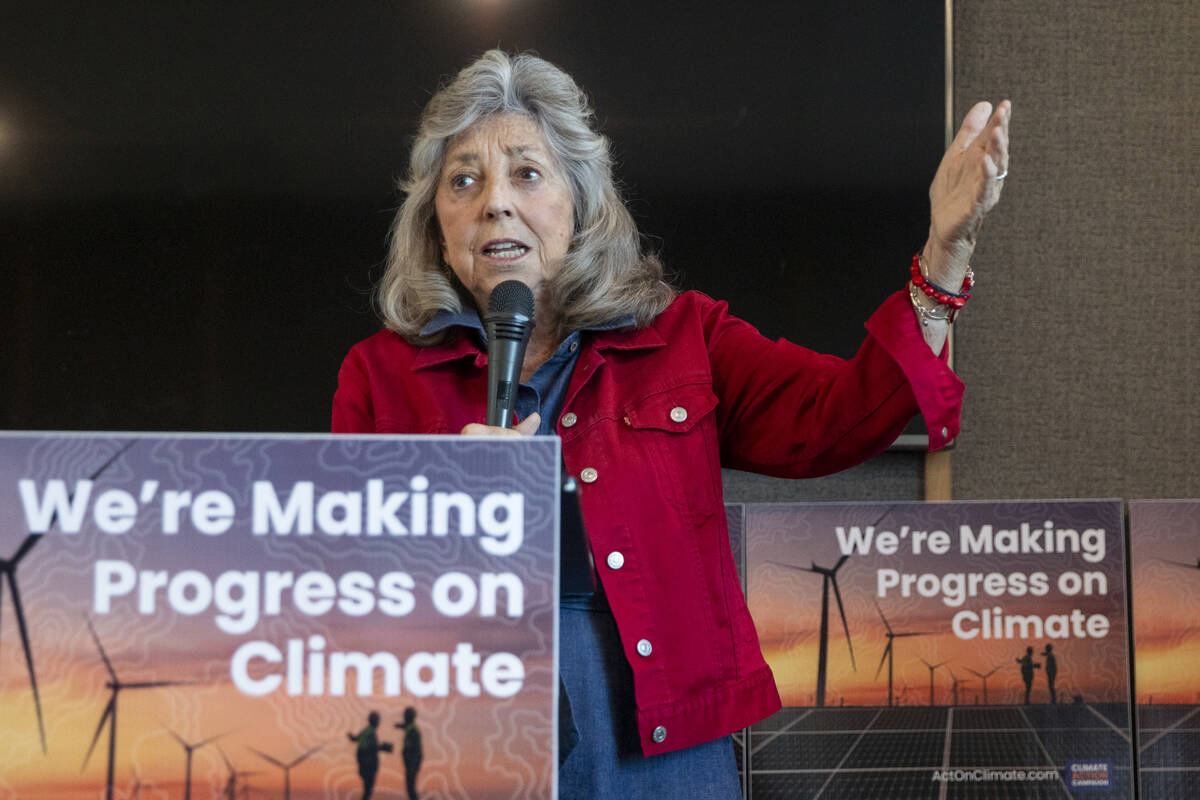After record year of heat, climate groups plan for new year under Trump
In Southern Nevada, extreme heat that is supercharged by climate change had a measurable impact this year.
Records show that at least 491 people have died in the desert heat, heat sent more than 4,000 people to the hospital, and about 460 workers filed heat-related complaints to Nevada regulators. Las Vegas broke its all-time heat record with a 120-degree day and experienced 112 days of triple-degree temperatures — a marked increase from the historic average of 77 days.
As leaders try to find local solutions, there’s a rightward shift happening in Washington, D.C. President-elect Donald Trump, who has called climate change a hoax, will take office in 2025.
At a virtual news conference on Wednesday, a handful of Nevada’s environmental advocacy groups hosted Congresswoman Dina Titus, D-Nev., to recap the toll extreme heat has taken on vulnerable communities this year.
“We’re going to wait until we have something that actually shows what the next steps from the next administration are going to look like,” said Andrea Masnata, a spokeswoman for Make the Road Nevada, a Las Vegas-based nonprofit focused on issues that affect immigrants. “Regardless of what president we have, we are going to continue to advocate for the environment. … This goes beyond who is taking that seat or not.”
Will Trump cut climate programs?
On the campaign trail, Trump made promises to suspend unclaimed funding from the Bipartisan Infrastructure Law and Inflation Reduction Act, thought to be the largest federal investment in climate change mitigation in history.
Audrey Peral, director of Latinx climate advocacy group Chispa Nevada, said one program the federal funding has created is the Solar For All initiative, where the cost of installing solar panels on homes could be covered for some Nevadans.
“It would be highly unprecedented for the next administration to pull back funding that has already been approved and is on its way to the state,” Peral said. “If, at some point, we are facing that, we will be counting on our Nevada delegation to really help protect the funding.”
Titus also discussed her commitment to her bill that would require the Federal Emergency Management Agency to release disaster funding to cities going through bouts of extreme heat and create an advisory board to better define it.
If it doesn’t pass in the current session, Titus said there’s enough bipartisan support for her to introduce it again in the next one under the Trump administration.
“It’ll be one of the first bills I introduce in the new session,” Titus said. “It’s recognizing extreme heat and giving agencies the ability to address it.”
New OSHA heat regulation considered a ‘win’
One change that many have found positive regarding urban heat is new protections for workers under a Nevada Occupational Safety and Health Administration regulation.
The regulation, created with input from industry and activists, requires companies that have 10 or more employees to craft a specific heat hazard plan.
It doesn’t include a temperature threshhold above which employers would need to provide shade, breaks or water — an original provision of a state bill that failed to gain traction.
“We do think that this is a win for the movement,” said Jackie Spicer of the Nevada Environmental Justice Coalition. “We still think that this can be improved upon, and that there is a long way to go for us to ensure that outdoor workers have the protections they need to be able to thrive and prosper.”
Contact Alan Halaly at ahalaly@reviewjournal.com. Follow @AlanHalaly on X and @alanhalaly.bsky.social on Bluesky.

















